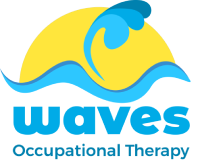
The Movement ABC assessment is a comprehensive tool designed to identify delays or impairments in children’s motor development. This assessment is widely utilised by occupational therapists to determine whether these difficulties significantly impact a child’s ability to engage in everyday activities at home, school, or in social environments, often involving children with Dyspraxia DCD.
Understanding the Movement ABC Assessment
The Movement ABC assessment evaluates how motor impairments or developmental delays influence a child’s physical abilities. Occupational therapists use this internationally recognised assessment to assess fine and gross motor skills, offering valuable insights into the challenges faced by children with movement difficulties, such as those with Dyspraxia DCD.
Where and How the Movement ABC Assessment is Conducted
The Movement ABC assessment can be delivered in various settings, such as clinics, homes, or schools. It’s carried out by qualified occupational therapists (OTs) who have received specialised training. Moreover, this assessment is internationally recognised and used by healthcare professionals worldwide, especially for conditions like Dyspraxia DCD.
When to Consider a Movement ABC Assessment
Children may benefit from a Movement ABC assessment if they experience:
- Clumsiness or frequent falls
- Poor hand-eye coordination
- Challenges with smooth or continuous movements
- Fine motor skill difficulties, such as handling small objects
- Trouble with gross motor tasks, including running, hopping, or balancing
- Visual perception challenges affecting movement
- Reduced muscle strength or tone
If you’ve noticed your child struggling with physical activities like throwing, catching, or outdoor games, a Movement ABC assessment could provide the clarity you need to support them.
Conditions That May Require a Movement ABC Assessment
The Movement ABC assessment is often recommended for children with conditions affecting motor development, including:
- Dyspraxia
- Developmental Coordination Disorder (DCD)
- Cerebral Palsy
- Developmental Delay
- Head Injuries
- Multiple Sclerosis
- Rett Syndrome
- Spina Bifida
- Stroke
Even if your child does not have a specific diagnosis but shows difficulty with activities such as running or balancing, the Movement ABC assessment can offer valuable insights.
What the Movement ABC Assessment Evaluates
The Movement ABC assessment provides a detailed evaluation of how movement difficulties affect a child’s daily life. It focuses on three key areas:
1. School Environment
Movement challenges can affect a child’s performance during physical education lessons, sports activities, and classroom participation. The Movement ABC assessment identifies areas where these difficulties impact academic performance and peer interaction, helping therapists develop targeted interventions.
2. Home Environment
At home, movement difficulties can make everyday tasks such as dressing, eating, or playing more challenging. The Movement ABC assessment evaluates these issues, providing practical strategies to improve daily living.
3. Physical and Social Impacts
The Movement ABC assessment explores the broader implications of motor difficulties, including their effect on physical development, emotional well-being, and behaviour. Children may experience frustration or reduced confidence, which can lead to behavioural changes or social withdrawal.
Post-Assessment Support and Treatment
Following a Movement ABC assessment, occupational therapists will provide:
- A detailed report explaining the results
- A personalised treatment plan tailored to your child’s needs
- Recommendations for improving motor skills at home and school
Treatment options include gross motor skills groups, one-on-one therapy, movement-based games, and education to support function and confidence.
Get Started with a Movement ABC Assessment
If your child struggles with motor development or coordination, the Movement ABC assessment offers a pathway to understanding and support. Contact our experienced team today to book an assessment and help your child unlock their potential.
